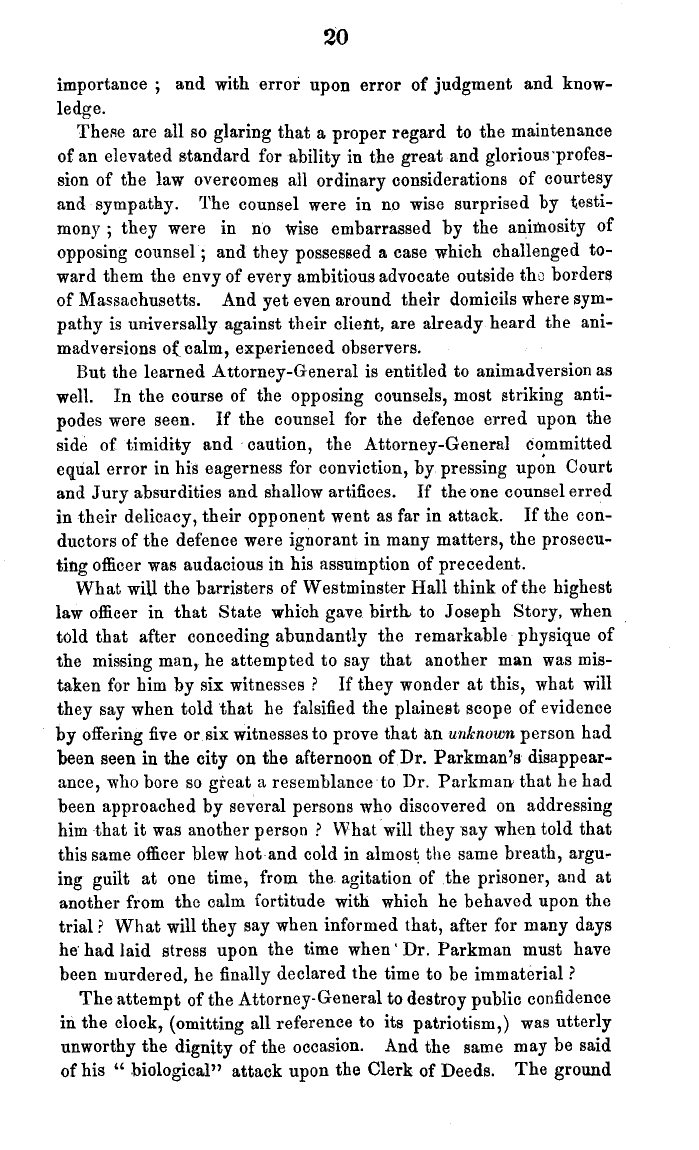|
20
importance ; and with error upon error of judgment and know-
ledge.
These are all so glaring that a proper regard to the maintenance
of an elevated standard for ability in the great and glorious ~profes-
sion of the law overcomes all ordinary considerations of courtesy
and sympathy. The counsel were in no wise surprised by testi-
mony ; they were in no wise embarrassed by the animosity of
opposing counsel; and they possessed a case which challenged to-
ward them the envy of every ambitious advocate outside tho borders
of Massachusetts. And yet even around their domicils where sym-
pathy is universally against their client, are already heard the ani-
madversions otcalm, experienced observers.
But the learned Attorney-General is entitled to animadversion as
well. In the course of the opposing counsels, most striking anti-
podes were seen. If the counsel for the defence erred upon the
side of timidity and caution, the Attorney-General committed
equal error in his eagerness for conviction, by pressing upon Court
and Jury absurdities and shallow artifices. If the one counsel erred
in their delicacy, their opponent went as far in attack. If the con-
ductors of the defence were ignorant in many matters, the prosecu-
ting officer was audacious in his assumption of precedent.
What will the barristers of Westminster Hall think of the highest
law officer in that State which gave birth to Joseph Story, when
told that after conceding abundantly the remarkable physique of
the missing man, he attempted to say that another man was mis-
taken for him by six witnesses ? If they wonder at this, what will
they say when told that he falsified the plainest scope of evidence
by offering five or six witnesses to prove that an unknown person had
been seen in the city on the afternoon of Dr. Parkman's disappear-
ance, who bore so great a resemblance to Dr. Parkman that be had
been approached by several persons who discovered on addressing
him that it was another person ? What will they 'say when told that
this same officer blew hot and cold in almost the same breath, argu-
ing guilt at one time, from the. agitation of the prisoner, and at
another from the calm fortitude with which he behaved upon the
trial? What will they say when informed that, after for many days
he' had laid stress upon the time when' Dr. Parkman must have
been murdered, he finally declared the time to be immaterial ?
The attempt of the Attorney-General to destroy public confidence
in the clock, (omitting all reference to its patriotism,) was utterly
unworthy the dignity of the occasion. And the same may be said
of his " biological" attack upon the Clerk of Deeds. The ground
|

